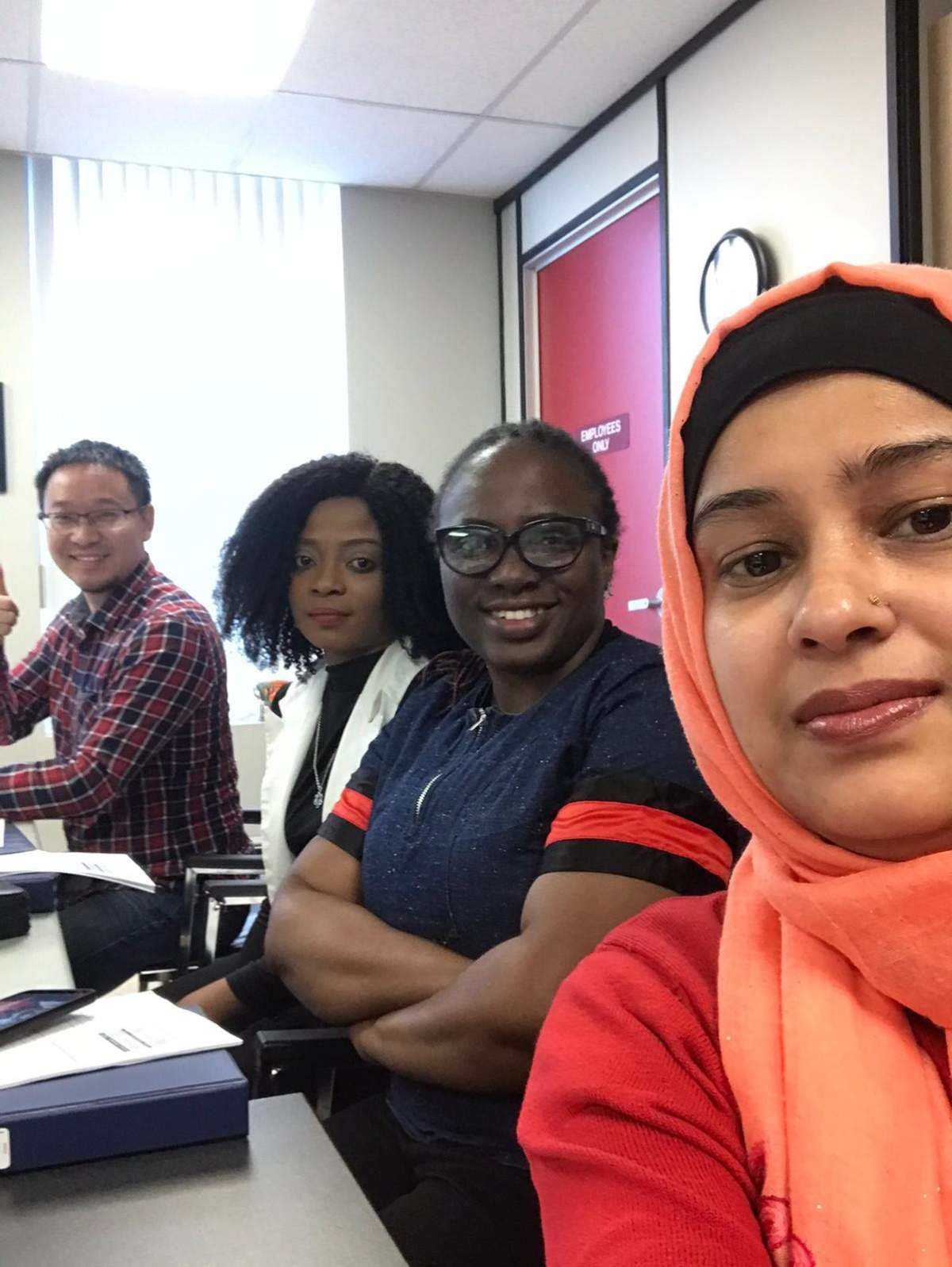Bola Oyewole was given the choice to terminate her volunteer work experience placement at the Regina YWCA as the reality of the COVID-19 pandemic settled in across Saskatchewan.

“I realized some people might not be able to work at that time because of what is going on,” said Oyewole, 29, who only began with the organization’s support services team at the end of February. “I thought, why leave when there are people who need help?”
While the YWCA’s vulnerable clients continue to rely on its staff, some of those workers have found themselves vulnerable in the face of the novel coronavirus.
“As every workplace right now is probably experiencing, there are people with compromised immune systems,” said YWCA Regina senior director of operations Alexis Losie. “They have had medical recommendations that they should be off work.”
Losie said that Oyewole, without hesitation, stepped up to fill voids in the support services team to ensure that the women the YWCA serves get the necessary care and attention.
“It reminds me and it reminds us as an association that there are people who do see that supporting and serving vulnerable folks is a priority in the city and in the community,” Losie said. “For her to say, ‘I am going to come and volunteer to get the experience’ on a good day is a wonderful contribution to the YWCA and to the community of Regina.
“But to do it in uncertain times such as this is truly incredible.”
Building community
Oyewole moved to Regina from Nigeria in October.
A new immigrant, she took classes through the Regina Open Door Society, a not-for-profit agency that works with government to help newcomers adjust.

Get weekly health news
Employment instructor Willow Iorga got to know Oyewole in the career bridging program, which is what eventually led Oyewole to the YWCA.
“She’s just fantastic.”
“I think a lot of people think more about money or things like that, but so many people forget what values are important,” Iorga said.
Getting to know not just Oyewole, but other students as well, is enlightening for Iorga, who said she’s consistently impressed by their resiliency.
Oyewole was not the only student who opted to continue with her volunteer work experience placement during the pandemic, Iorga said.
“So many of them wanted to continue helping and chose to keep helping,” Iorga said, noting that a number of others who were healthy and understand the necessary precautions completed their sessions.
Iorga said that the students often value the volunteer work placements because of the opportunity to build community.
And that’s what Oyewole has done at the YWCA.
Finding family
Most of Oyewole’s family is back in Nigeria, something she said she has been grappling with more or less alone.
“I must confess it is really difficult.”
Oyewole is practising social and physical distancing both at work and at home.
“I need somebody to talk to, another family, and YWCA has been more than that to me,” she said.
After the YWCA closed its doors to the public on March 18, Oyewole’s role at the reception desk evolved. She now does a little bit everything — such as answering phones, wiping down doors, handling pre-arranged food donations, and interacting with residents.
Losie said she has been so impressed by Oyewole that she is optimistic there will be a permanent, paid position at the end of the coronavirus crisis.
But that’s not why Oyewole, who has been deeply moved by the kindness of Regina residents, is still with the organization.
“The community has given to me. I need to give to the community in this little way if I can,” Oyewole said.
Questions about COVID-19? Here are some things you need to know:
Health officials caution against all international travel. Returning travellers are legally obligated to self-isolate for 14 days, beginning March 26, in case they develop symptoms and to prevent spreading the virus to others. Some provinces and territories have also implemented additional recommendations or enforcement measures to ensure those returning to the area self-isolate.
Symptoms can include fever, cough and difficulty breathing — very similar to a cold or flu. Some people can develop a more severe illness. People most at risk of this include older adults and people with severe chronic medical conditions like heart, lung or kidney disease. If you develop symptoms, contact public health authorities.











Comments
Want to discuss? Please read our Commenting Policy first.